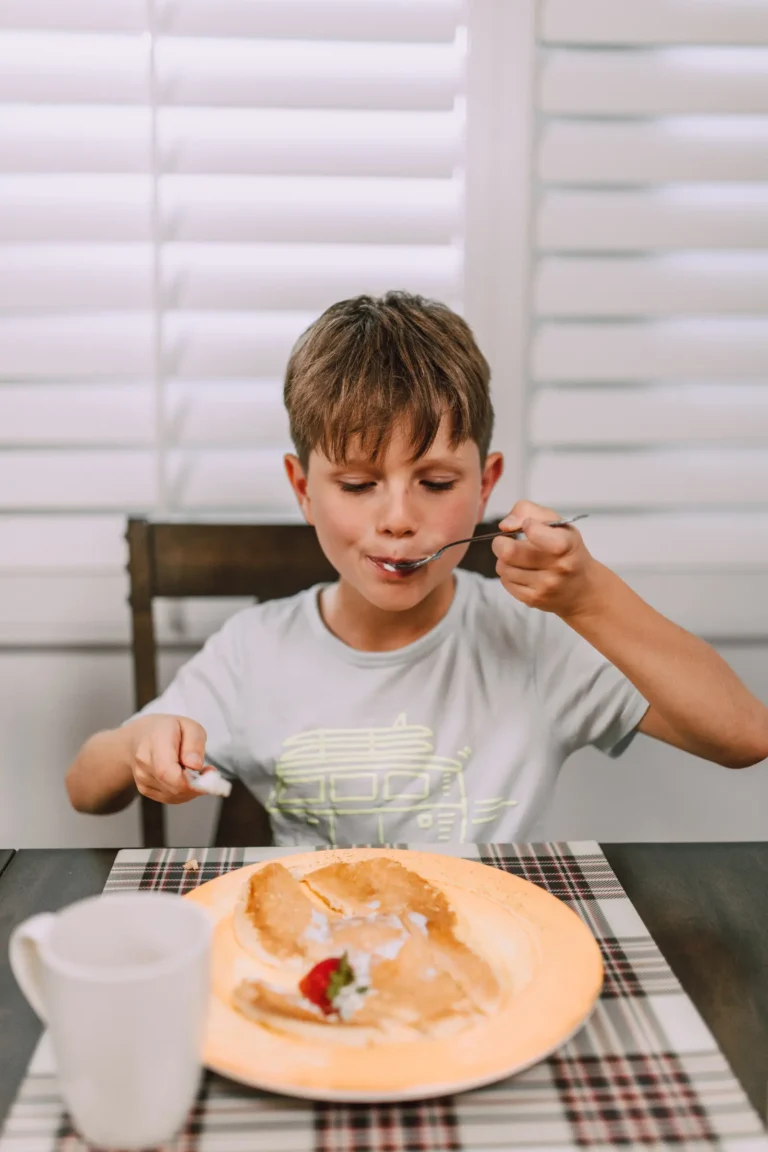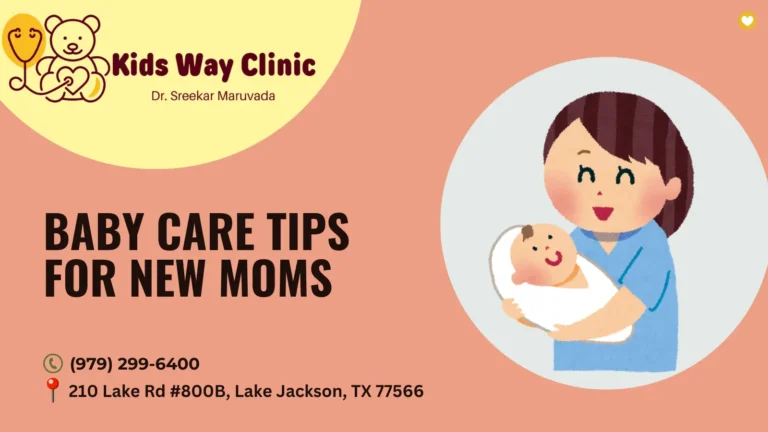How To Treat Seasonal Allergies In Babies Of Lake Jackson, Texas
Nearly 1 IN 5 children get seasonal allergies because of their weak immune systems that can’t resist climate change. The specific areas of Texas are more prone to a constantly changing climate, which frequently results in seasonal allergies in babies, toddlers, and young children.
Here’s everything you need to know about the causes, symptoms, and how to treat seasonal allergies in the babies of Lake Jackson, Texas and nearby areas.
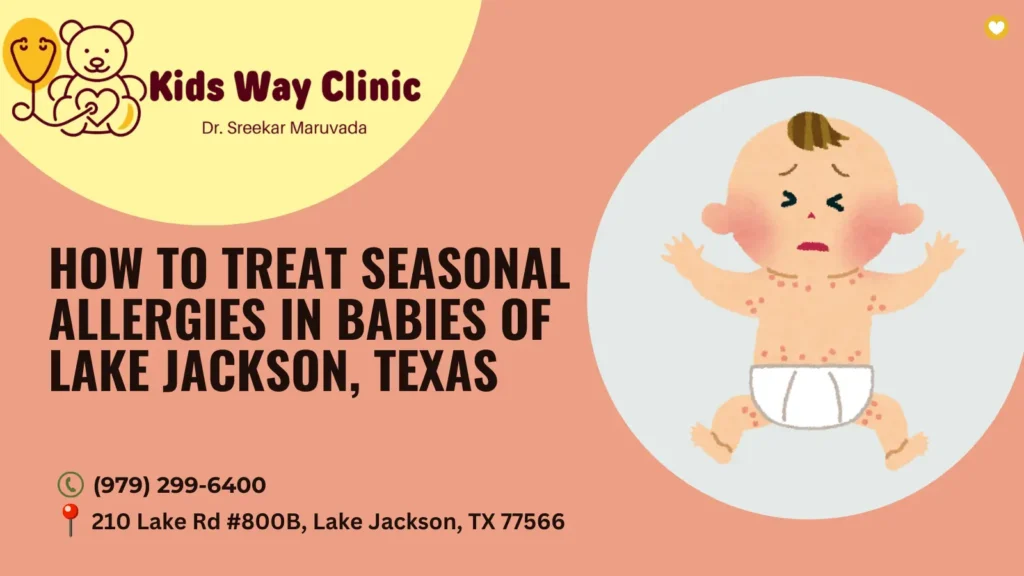
When Do Babies Develop Seasonal Allergies?
Seasonal allergies in babies can occur at any age, depending upon their exposure, environment, and travel diaries. Babies usually don’t have seasonal allergies in their first year because they don’t often get exposed to the outdoor environment.
If you notice allergy symptoms, such as runny or stuffy nose, watery eyes, or sneezing getting worse in your babies during certain seasons in an area of Lake Jackson, Texas, it may have been caused by the common triggers (indoor allergens) like pet dander, dust, pollen, molds, etc.
Seasonal allergies are more common in children aged 3-5 years when they start playing outdoors for hours and get exposed to various triggers.
What are the Causes of Seasonal Allergies in Babies?
As per the research about allergies in Texas, it stays nearly year-round. If you live in Lake Jackson, Houston, Pearland, Sweeny, Angleton, or Brazoria County, and your babies couldn’t stop sneezing or rubbing their red, watery eyes, they might have been suffering from seasonal allergies that must be addressed immediately by contacting the pediatrician near you. It can occur because of something they have touched or inhaled indoors or outdoors.
Three out of four seasons, spring, fall, and summer, usually bring allergens into the environment that become the cause of seasonal allergies in babies. It also depends upon your area and the specific plants you’re surrounded by.
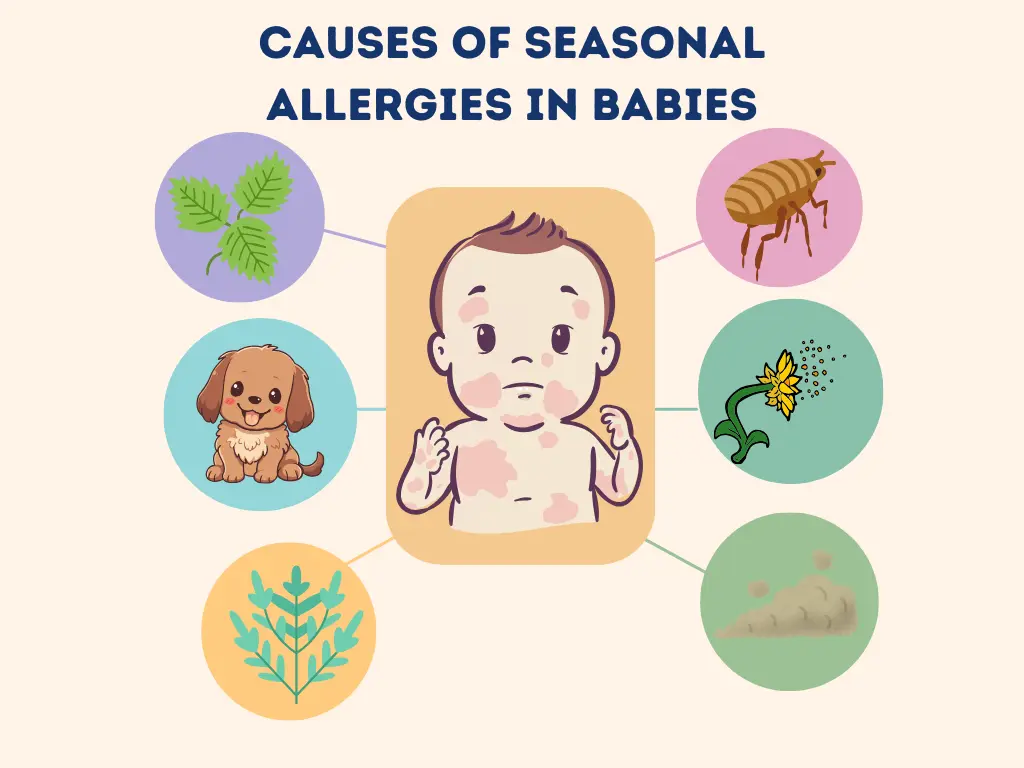
As soon as the allergen triggers the immune system, a hypersensitivity response occurs by the release of histamine that causes allergy symptoms. The following are the most common allergies that occur in specific seasons:
1. Allergies in Spring Season
Most parts of the United States enjoy spring seasons typically in March to May. The most common allergies that occur in babies during spring are due to the cross-pollination of tree pollens such as pine, oak, cedar, etc.
2. Allergies in the Fall Season
Ragweed pollen is the most common allergen that causes allergies in the fall season of Lake Jackson, Texas, from August to October. Molds are also one of the culprits growing in damp areas indoors and outdoors. The least but the other possible causes could be weed pollen from plantain, nettle, sage, etc.
3. Allergies in the Summer Season
Dust mites are a common cause of allergy symptoms during humid summer months. If you live in the northern areas, your babies can also get seasonal allergies due to grass pollens from orchards, Bermuda, Rye, etc.
How to Treat Seasonal Allergies in Babies of Lake Jackson?
You don’t need to worry if your baby suffers from seasonal allergies because we’ve listed the easy ways for you to treat allergies at home:
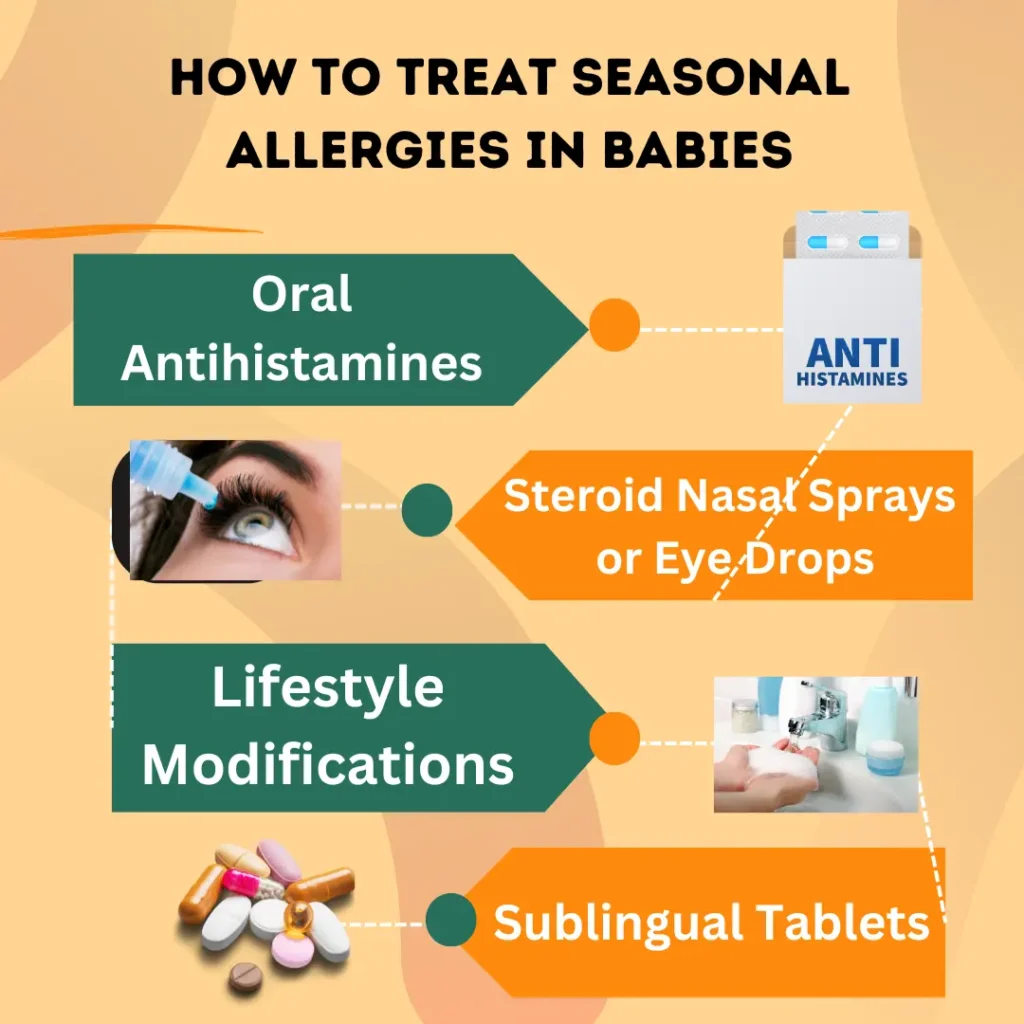
1. Oral Antihistamines
Antihistamines are one of the first-line treatments for seasonal allergies that stop the further release of histamine from mast cells and relieve allergic symptoms. You can get over-the-counter antihistamine medications for a quick relief of allergic symptoms such as loratadine, cetirizine, and fexofenadine.
Note: Doctors don’t recommend diphenhydramine to treat children’s allergies as its side effects include sedation, dizziness, stomach upset, nausea, etc.
2. Steroid Nasal Sprays or Eye Drops
There are specialized pediatric-formulated nasal sprays available over-the-counter to treat seasonal allergies causing nasal symptoms in children. An azelastine is a nasal antihistamine that can be used to treat stuffy or runny noses without a prescription. It may cause drowsiness in children.
Other steroid formulations effective for nasal symptoms of children, including triamcinolone, fluticasone furoate, and fluticasone propionate, are safe and effective for children. Give it to them for a few days until the symptoms are relieved, or consult a doctor if it exceeds two weeks.
Itchy and watery eyes caused by allergens can also cause infection later by constant rubbing. You can relieve it by getting an eye drop to soothe it and enjoy relief.
3. Lifestyle Modifications
Make a few lifestyle modifications to avoid indoor and outdoor triggers from causing seasonal allergies in babies. Minimize pollen exposure by keeping your doors and windows closed during peak pollination periods. Avoid long-time outdoor activities while changing and bathing your babies after being outside.
If you have pets at home, their fur may be a cause of carrying pollen inside and causing allergies. Don’t forget to bath them frequently, clean their furs as soon as you see them on the floors or furniture, and get them vaccinated regularly.
4. Sublingual Tablets
If your baby is experiencing ragweed or grass allergies, which are not resolved by quick methods, you can consult an allergist and go for sublingual immunotherapy.
At the first visit, the doctor gives the first dose to the child by placing the tablet under the tongue and monitoring for any side effects. If everything goes smoothly, you will need to give one tablet daily at home up to the recommended days.
Can a Two Month Old Have Allergies?
Allergies can occur at any age and you can identify it in your two-month-old baby by signs of vomiting, runny nose, sneezing, diarrhea, and swelling of lips, eyes, or other parts of the body. Give them over-the-counter antihistamines intended for specific-aged children or consult an allergist if it doesn’t work.
Concluding Remarks about Baby Allergies
Seasonal allergies are common among babies, toddlers, and young-aged children of Lake Jackson. You can prevent it by taking precautions such as eating healthy diet and avoid contact with pollen, mites, dust, and pet danders. Try over-the-counter medications to minimize the allergic symptoms.
Consult an allergist immediately if things don’t work or your baby is getting complications like ear infections, asthma attacks, or eczema flares, and go for allergy testing to find the underlying cause, if necessary.

